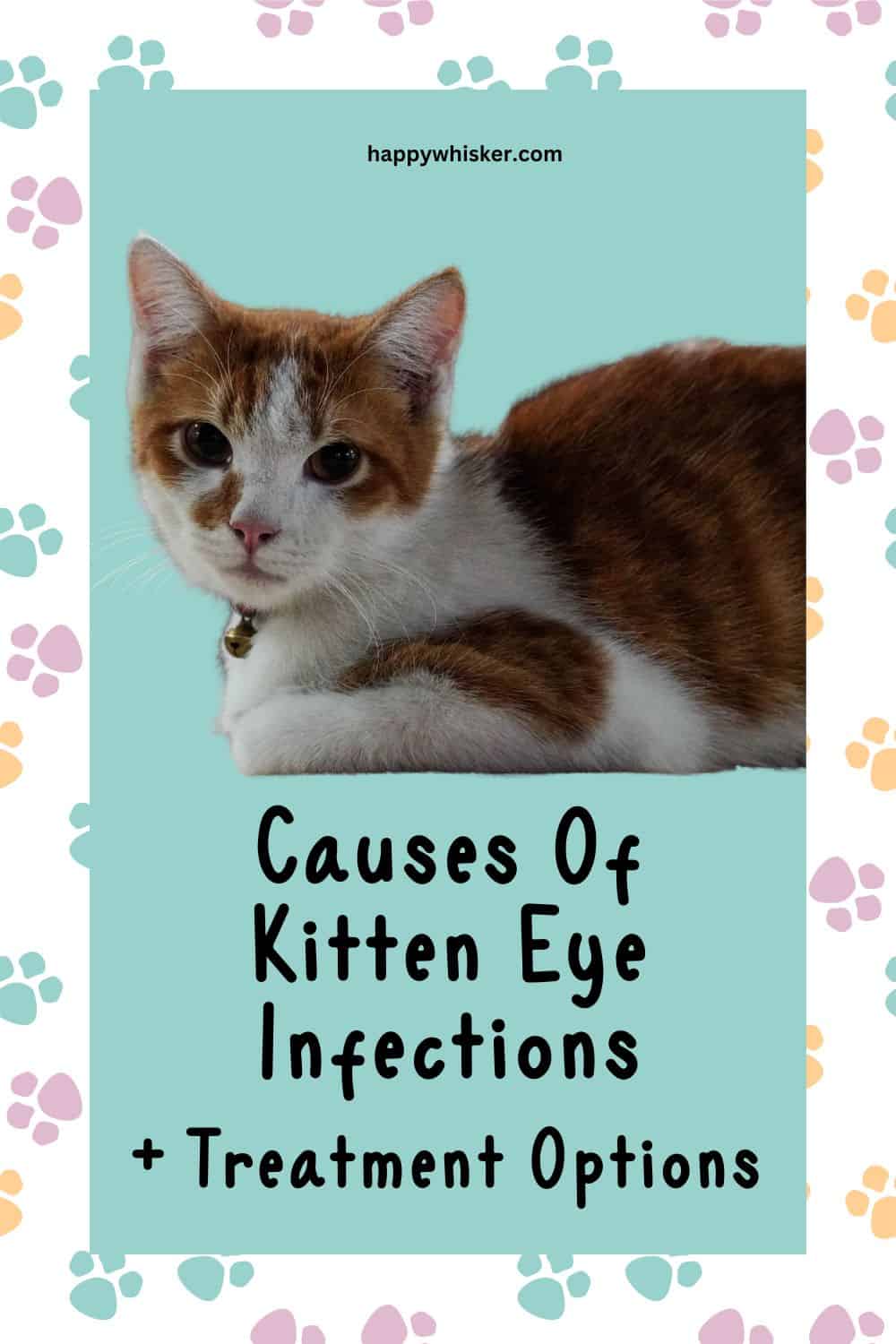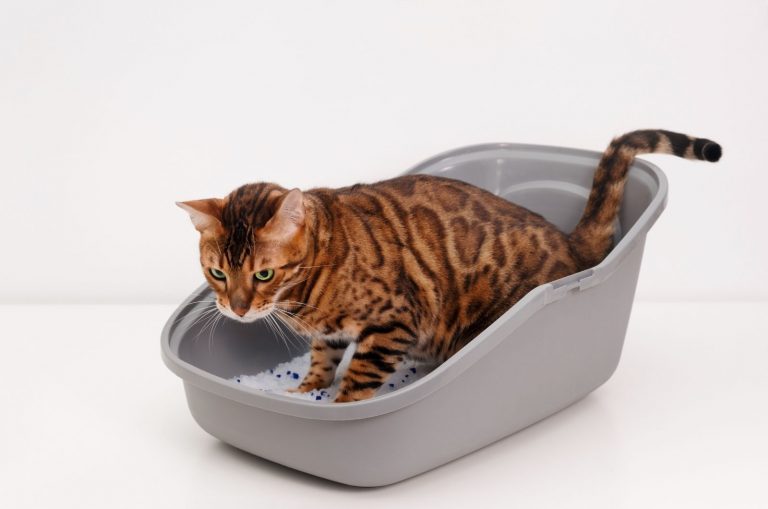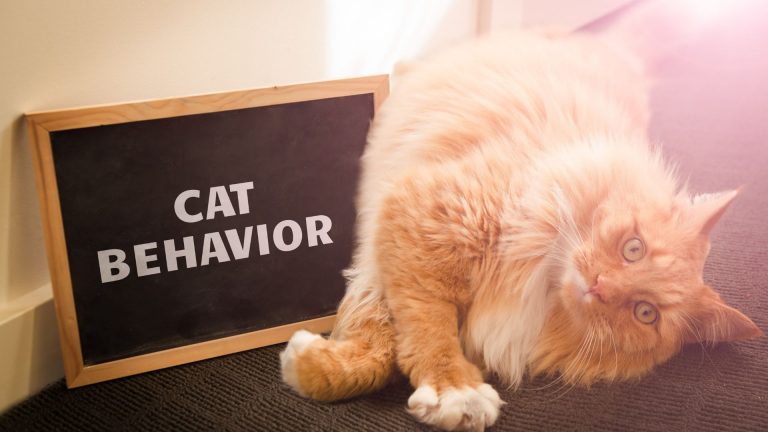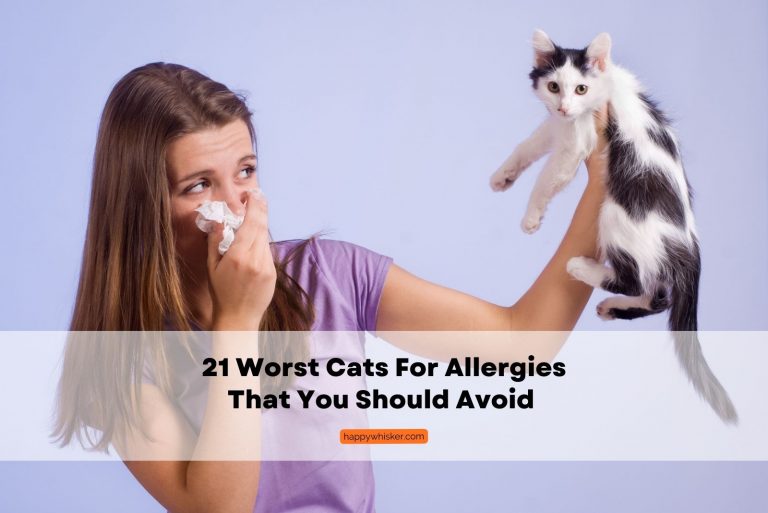Causes Of Kitten Eye Infections + Treatment Options
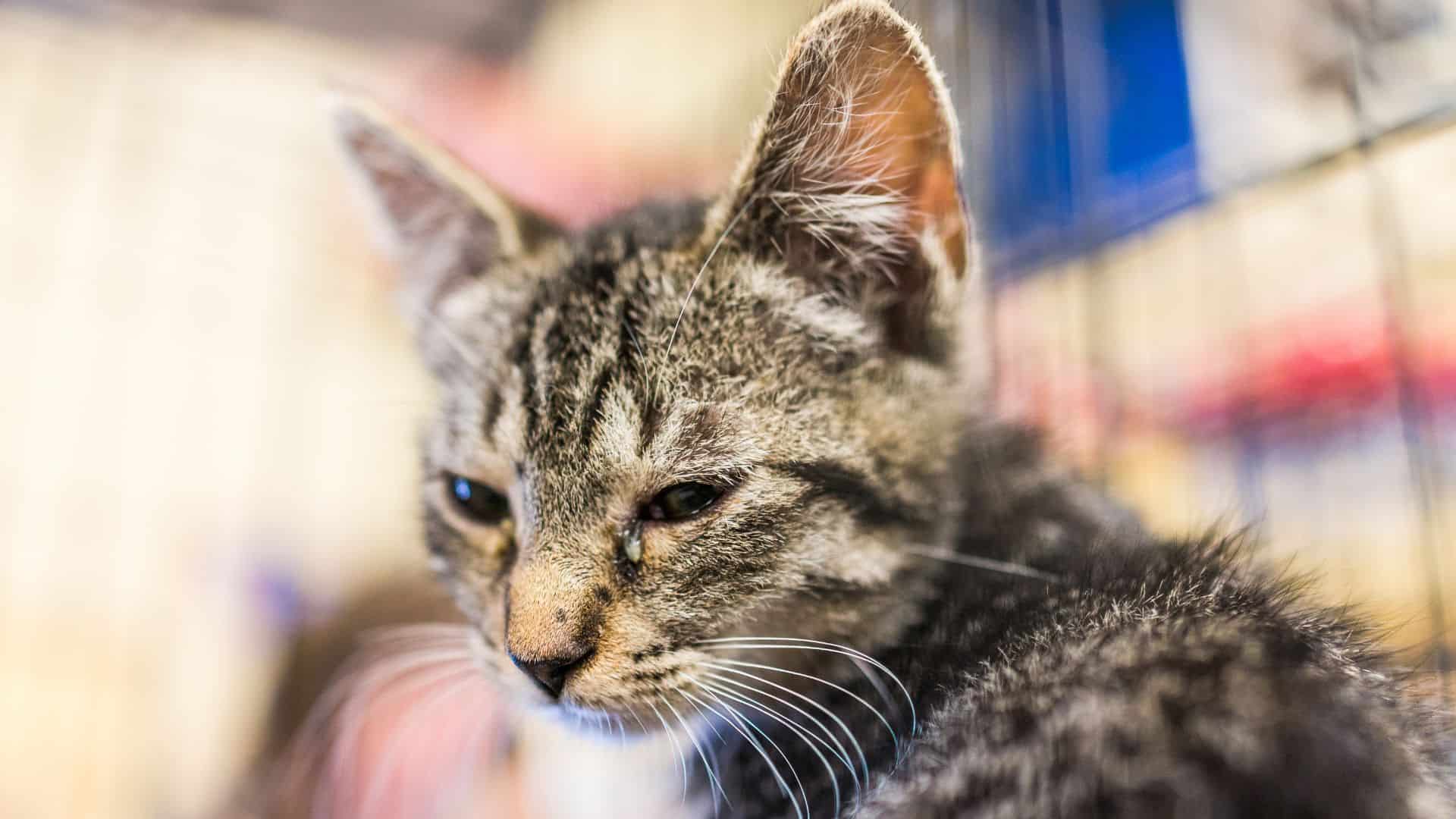
The eyes of young newborn kittens are extremely sensitive; therefore, special care is essential.
When kittens are born, they’re vulnerable and completely helpless because they’re blind and deaf.
Kittens start opening their eyes in the first two weeks of age, but their vision during that period isn’t fully developed, which is why they need special care to keep their eyes healthy.
This is crucial because if you don’t take good care of their eyes, many eye issues may occur that require professional help.
So, if you want to take good care of your kitten’s eyes and be aware of the possible causes of kitten eye infections as well as how to treat them, then read on to find out more.
Possible Causes Of Kitten Eye Infections And How To Treat Them
When kittens open their eyes for the first time, they still aren’t able to see clearly as their vision is extremely sensitive.
This period is crucial because young kittens are prone to many different eye infections as well as other diseases.
There are several causes of kitten eye infections that I will discuss further on in the article. Each one of these conditions is characterized by certain symptoms and requires special treatment.
So, if you want to be prepared for such situations, keep reading and find out what can cause a kitten eye infection and how each infection should be treated.
Bacterial Infections
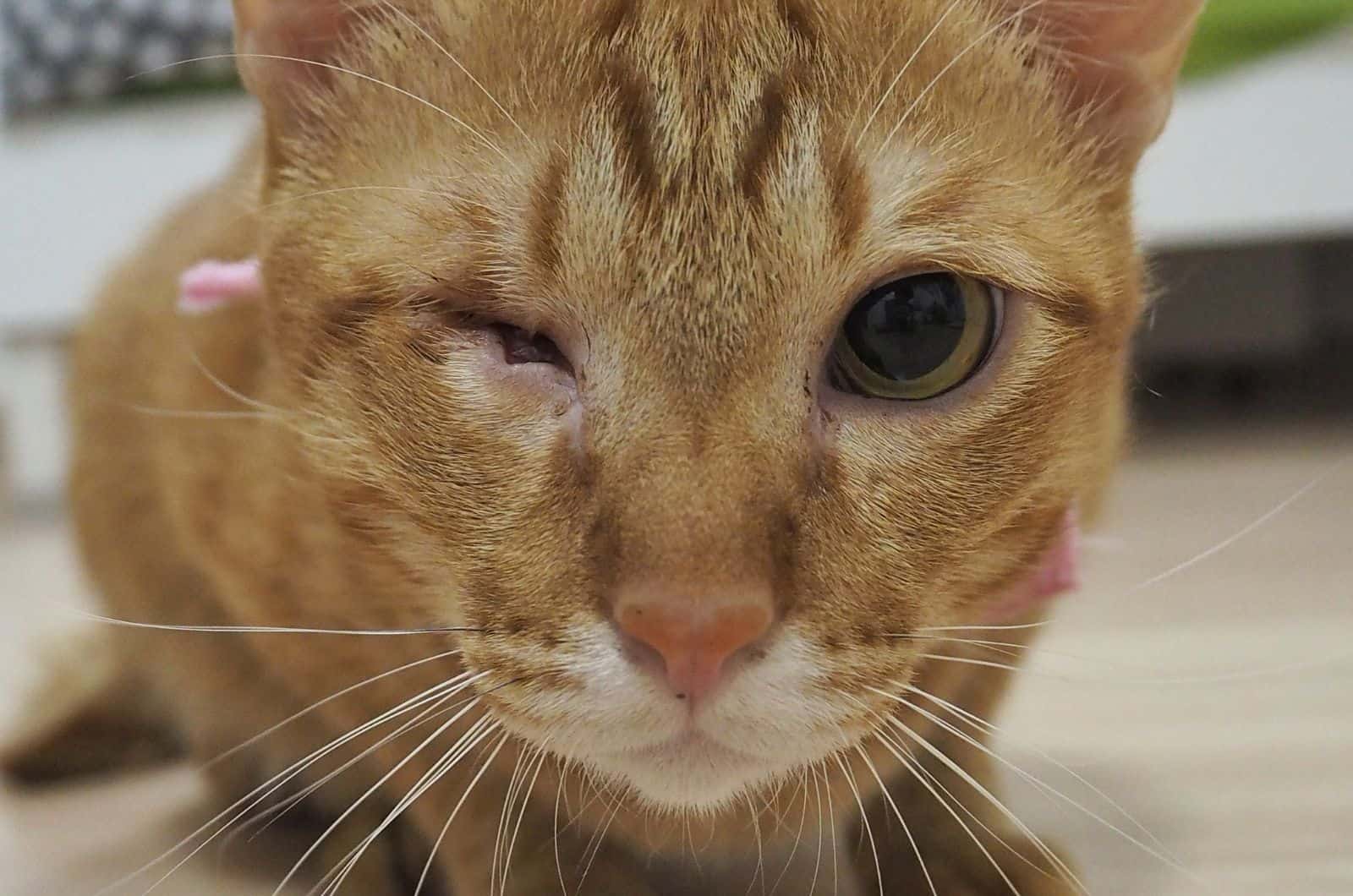
Kitten eye infections may occur due to different types of bacteria, such as:
• Mycoplasma
• Chlamydia
• Staphylococcus spp.
• Streptococcus spp.
Although there are many other bacteria that can cause these infections, these are the most common ones. This type of infection is more common for orphaned kittens or those who are kept in bad conditions.
The symptoms of secondary bacterial infections in kittens include:
• Eye discharge
• Closed Eyes
• Crusts
• Red and watery eyes
Treatment
If you suspect that your kitten has eye problems, watch for other signs, such as unusual behavior or any other changes, and ensure you take your kitty to the vet.
Inform your vet about the changes you have noticed so that he can easily determine the underlying cause.
Finally, when the vet determines that the infection is caused by bacteria, he’ll gently open the kitten’s eyes, clean them and apply antibiotic ointment.
Moreover, the vet will provide you with instructions on how to continue the treatment, and he may also prescribe antibiotic medications to treat the infection.
Viral Infections
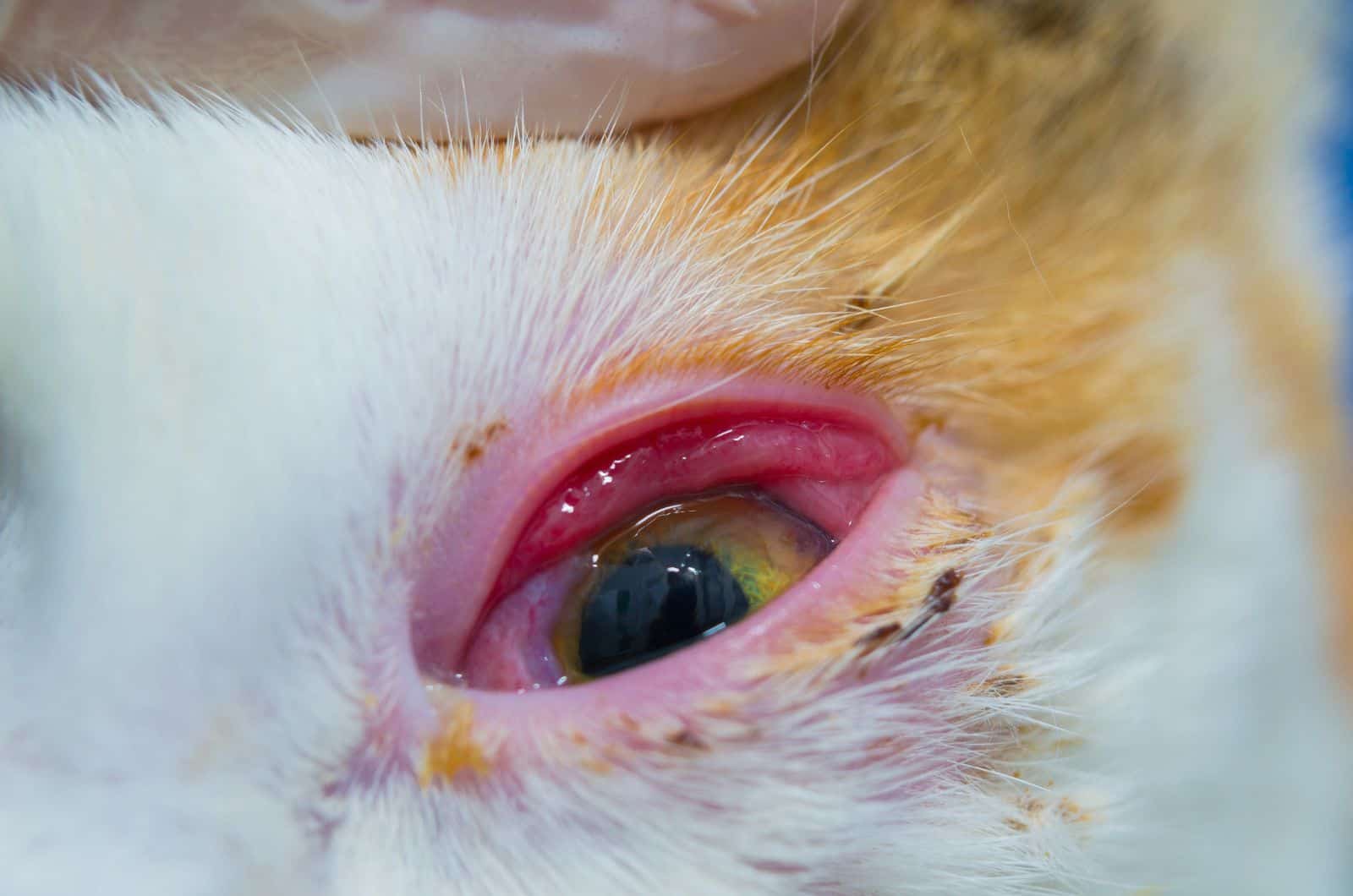
Viral infections are similar to bacterial ones; however, the thing that causes the infection, in this case, is a virus. There are several types of viruses, but the most common in cats are:
• Herpesvirus (Feline viral rhinotracheitis)
• Calicivirus
Both of these viruses are contagious, so if one kitten gets a viral infection, it’s likely that its littermates will get it too. If not treated properly and on time, these infections may lead to serious issues such as upper respiratory disease and similar conditions.
The symptoms of viral infections in kittens and cats may include:
• Swollen eyes
• Watery eyes
• Eye discharge
• Irritation of the third eyelid
Treatment
As far as treatment is concerned, first, the vet will determine the underlying cause and clean the kitten’s eyes carefully.
After that, he may provide the kittens with certain oral antibiotics, antiviral medications, or immune boosters to kill the virus responsible for the problem.
Feline Herpes
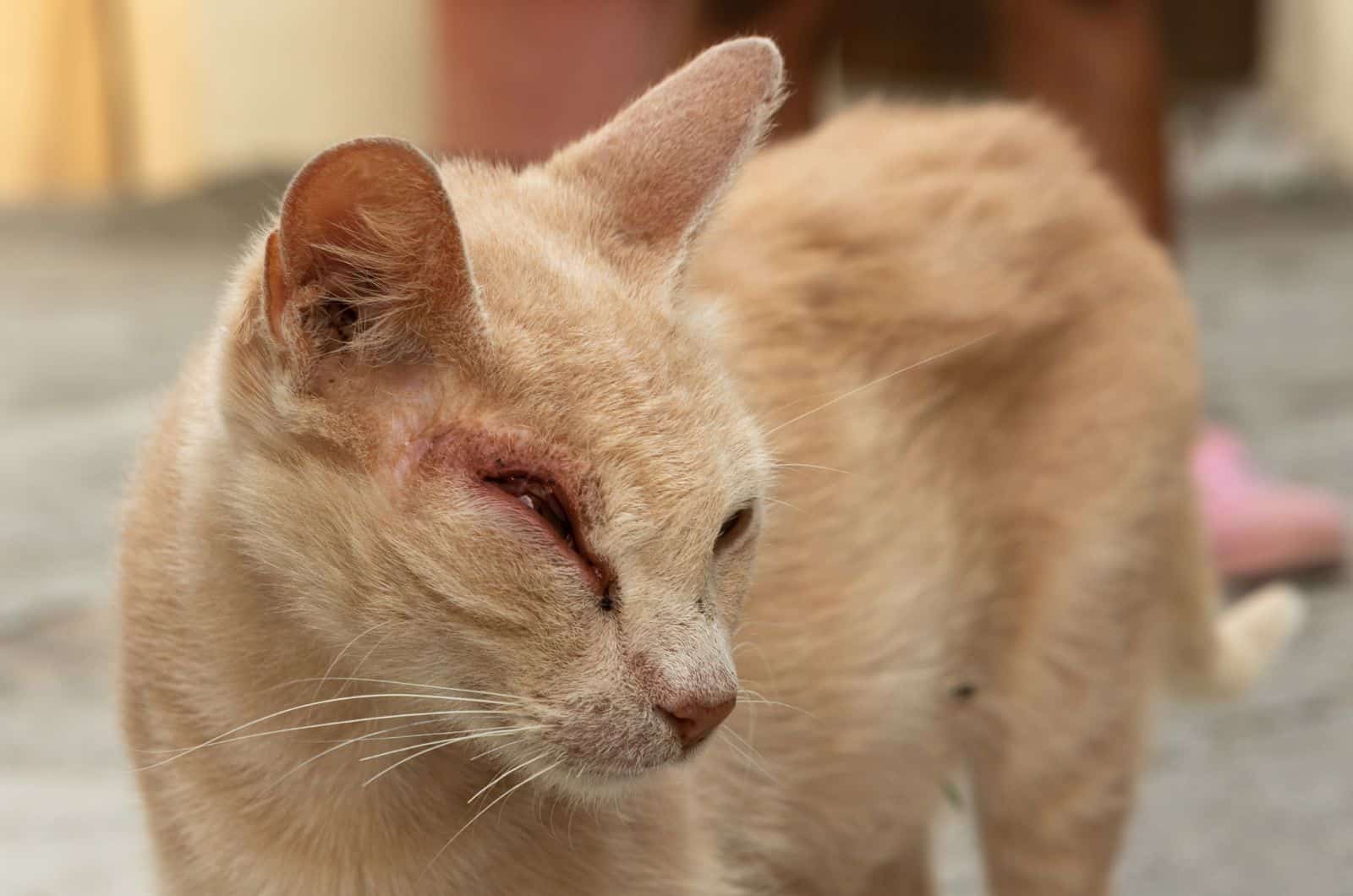
If your kitten gets infected with the feline herpes virus, it may easily develop other eye problems, such as conjunctivitis, upper respiratory infections, or even corneal ulcerations.
Treatment
Unfortunately, feline herpesvirus cannot be cured; however, it has been proven that stress may trigger the symptoms.
Therefore, it’s important to find out what causes stress to your cat and try to reduce it, as well as providing your kitty with a safe and calm environment.
Allergies
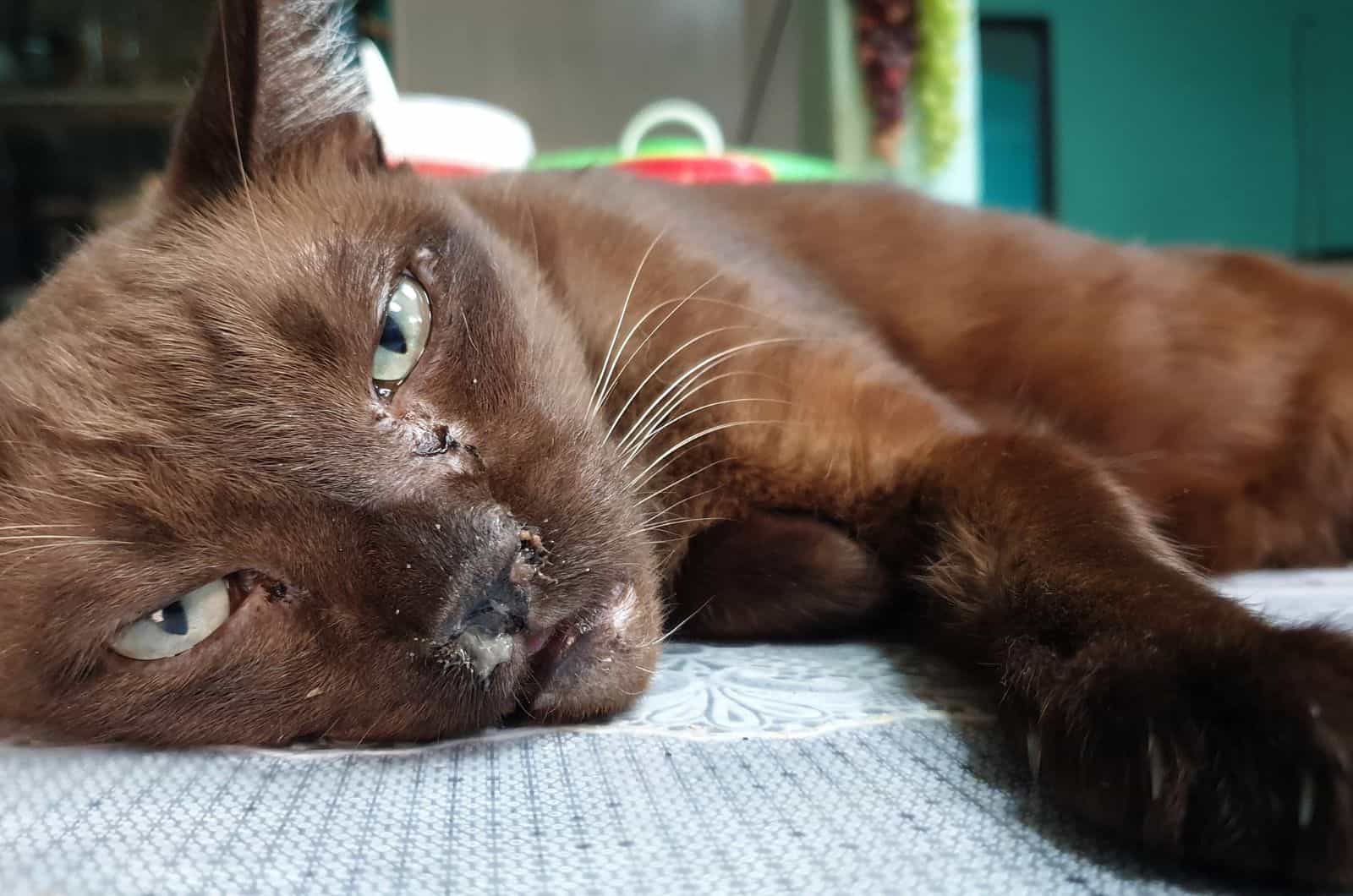
Another common cause for kitten eye infections are different types of allergies. These are conditions where a kitten’s immune system reacts to certain irritants. They may result in symptoms such as:
• Coughing
• Itchy and red eyes
• Skin irritations
• Vomiting
• Diarrhea
• Runny or congested nose
Depending on the type of allergies, they can be either mild or severe. In severe cases, kittens may develop breathing difficulties.
Treatment
If your kitten develops an eye infection due to allergies, it’s important to take the kitten to the vet for an examination.
The vet will determine the exact cause of any allergies and provide you with further instructions.
Each allergy is treated differently; for example, if your kitten has food allergies, then you need to determine what type of food triggers the allergic reaction and provide the kitten with a hypoallergenic diet.
In severe cases, the vet may provide your kitten with certain medications, such as antihistamines or therapies that will calm the cat’s immune system.
Conjunctivitis
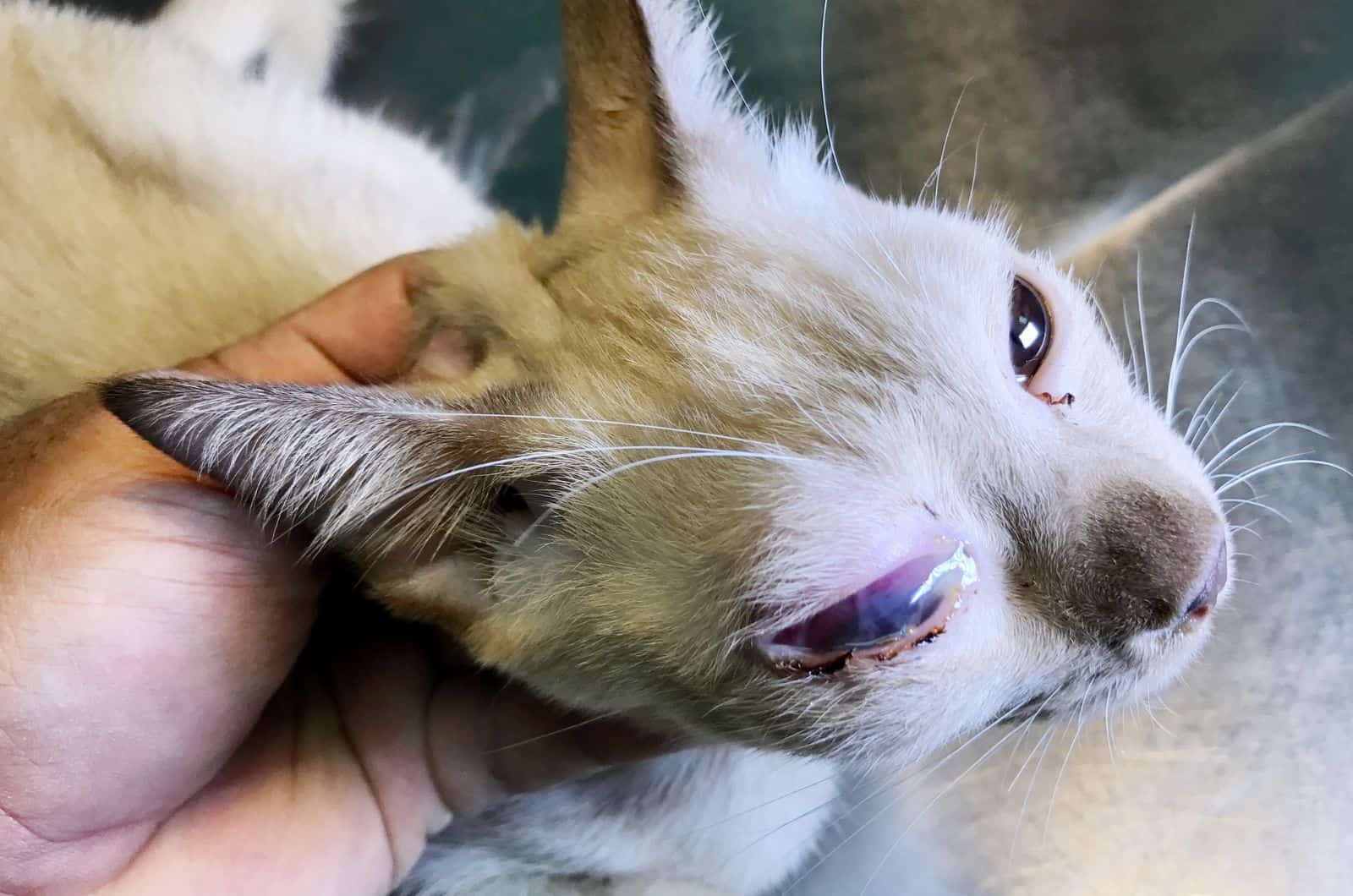
Conjunctivitis is a very common cat eye infection. It refers to the inflammation of the thin mucous membrane called the conjunctiva.
The conjunctiva has an important role in a cat’s vision as it provides the eyeball with lubrication. When the conjunctiva gets inflamed, it can no longer lubricate the cat’s eyeball, leading to symptoms such as:
• Swollen eyes
• Red eyes
• Squinting
• Excessive blinking
• Eye discharge
Conjunctivitis may affect one or both eyes, including the cat’s third eyelid. In mild cases, conjunctivitis will resolve by itself; however, in severe cases, a vet examination and medications will be required.
Treatment
Most cats will develop conjunctivitis at some point in their lives, and it usually resolves by itself. However, it’s better to seek professional help if you suspect that your kitten has developed conjunctivitis.
The vet may run some blood tests and urinalysis to check if the conjunctivitis is a result of some systematic disease.
If not, the vet will provide the kitten with antibiotic medication, ointment, or eyedrops to treat the condition, depending on its condition.
Additionally, you can consult with the vet on what you should do next and how to take proper care of your kitten’s eyes.
Keratitis
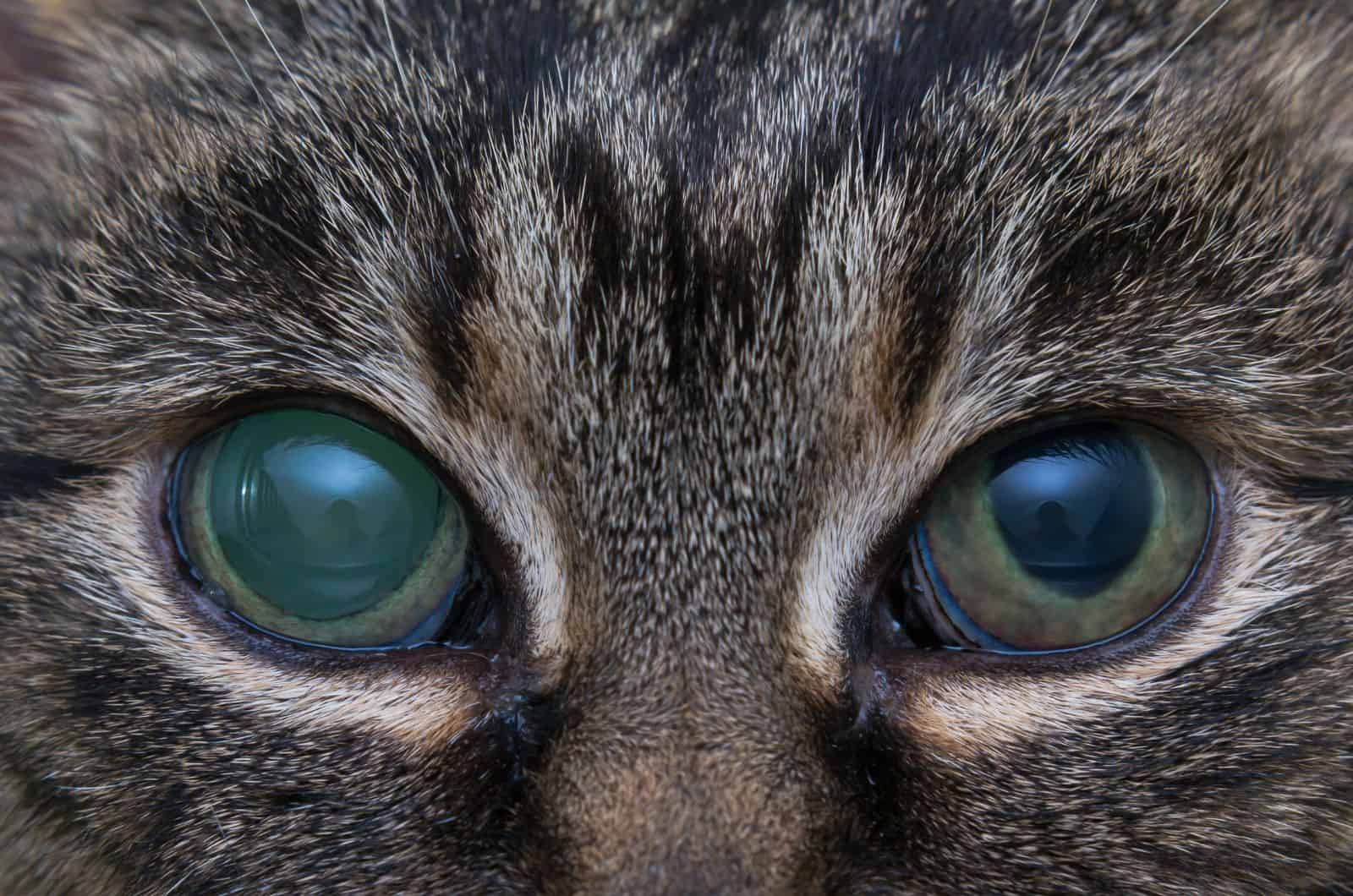
Keratitis refers to the inflammation of the surface of the eye called the cornea. There are several types of keratitis that cats may experience:
• Eosinophilic keratitis
• Non-ulcerative keratitis
• Ulcerative keratitis
The possible symptoms of keratitis include:
• Dry eyes
• Inflammation of the eyelids
• Lethargy
• Squinting
• Excessive blinking
• Red eyes
• Eye discharge
Keratitis usually develops due to eye trauma, viral or bacterial infections. In each case, it’s crucial to determine the exact cause of the infection so that the kitten’s eyes can be treated properly.
Treatment
First, the vet will examine the kitten’s eyes and look for symptoms so that he can determine the right cause of the infection. As there are three different types of keratitis, each type needs to be treated differently.
In mild cases, keratitis is usually treated with eyedrops, corticosteroids, or antibiotic ointment and medications. However, in severe cases, surgery of the cornea may be inevitable.
Blepharitis
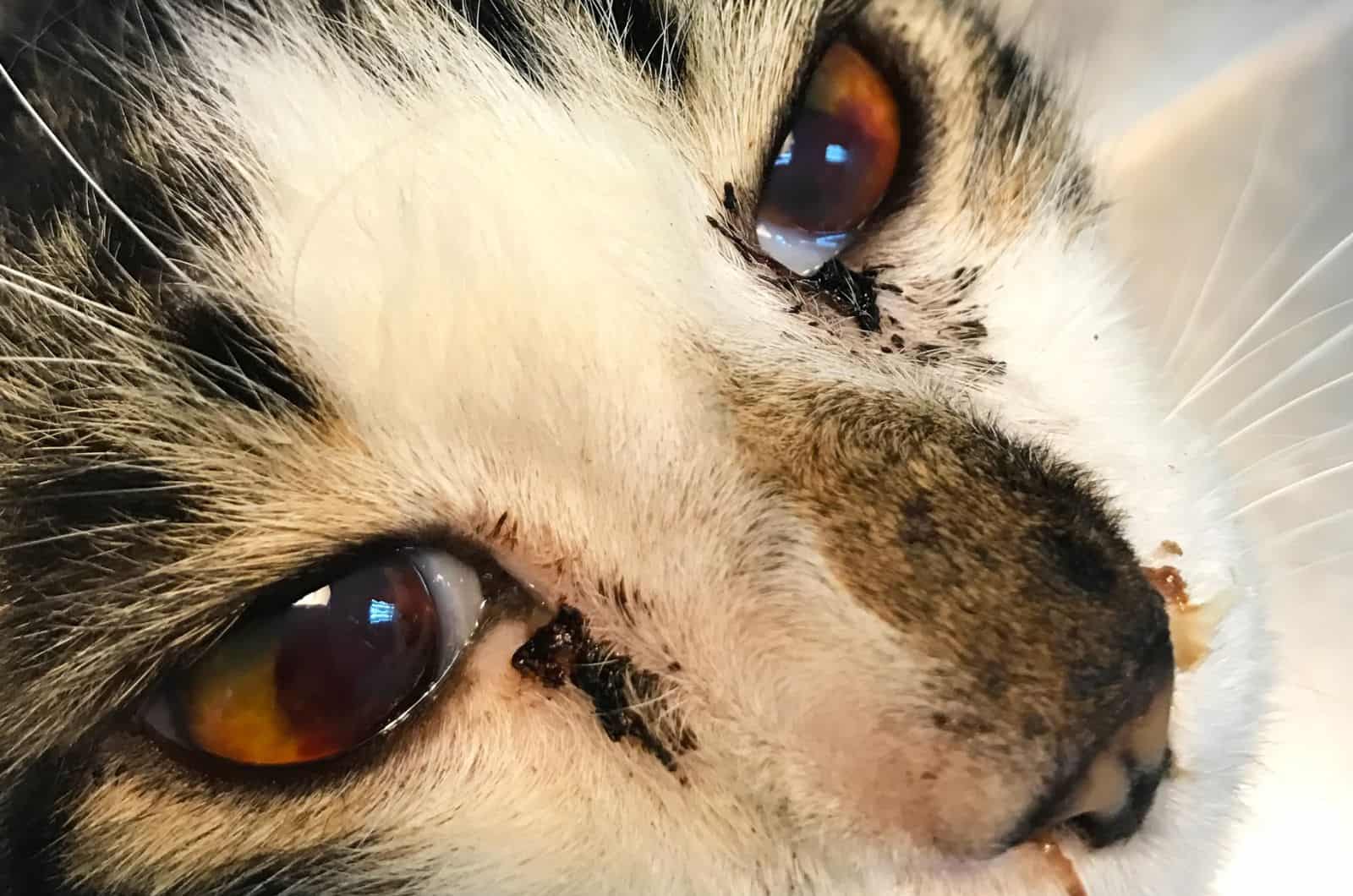
Blepharitis is an eye condition that is common for cats and kittens. It refers to the inflammation and infection of the kitten’s eyelid.
Blepharitis may be caused by several things, such as diabetes, tumors, allergies, or eye trauma.
The symptoms that cats may have when dealing with blepharitis are:
• Swollen eyelids
• Itchy eyes
• Red or pink eyes
• Eye discharge
If you notice some of these symptoms, you should take your feline friend to the vet for an examination.
Treatment
After the vet examines the kitten’s eyes, he’ll provide it with the proper treatment. Blepharitis is usually treated with eye ointments. However, if the infection develops alongside blepharitis, antibiotics will also be required.
Uveitis
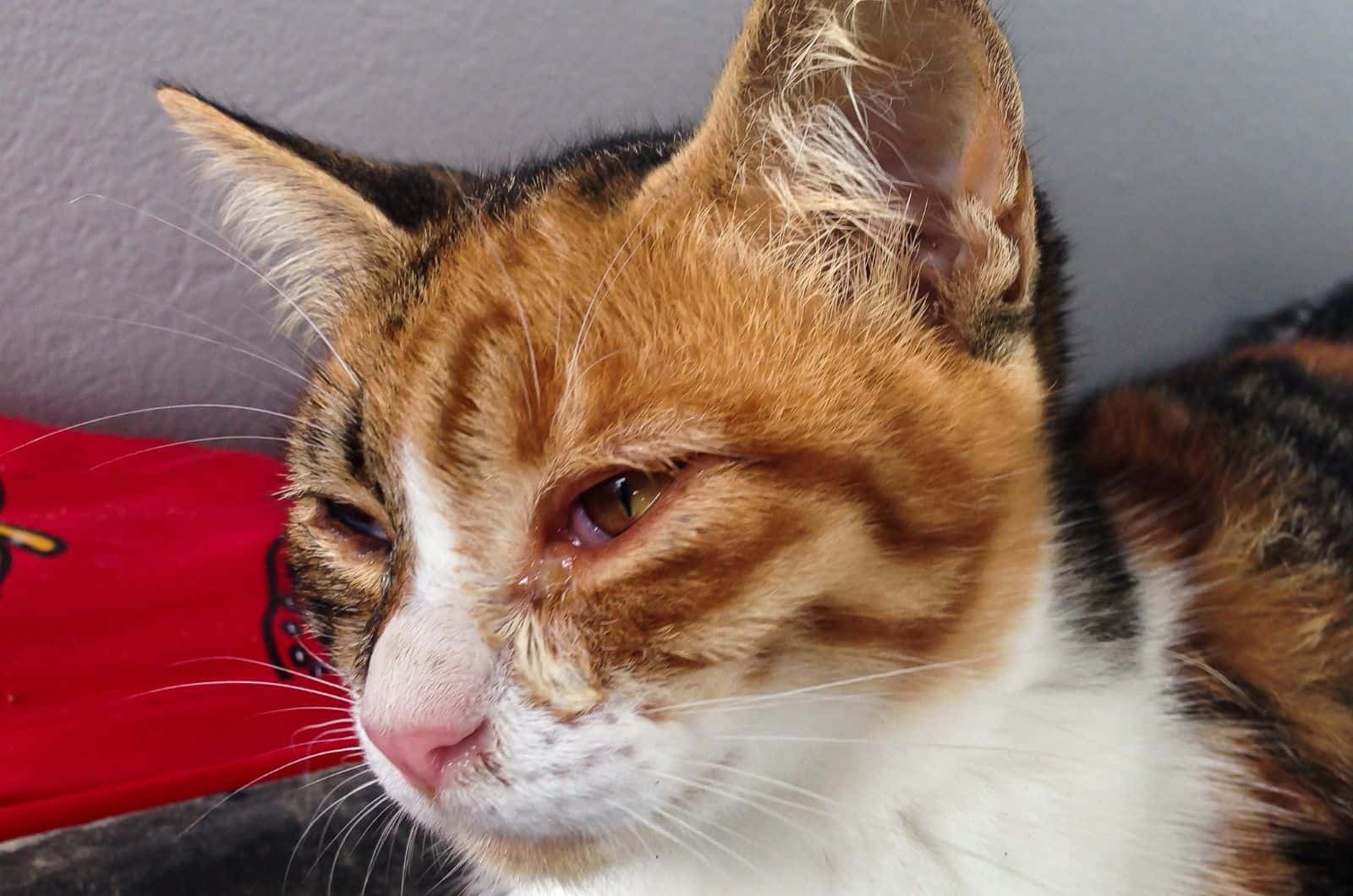
Uveitis is another possible cause of kitten eye infections. It is a painful condition that refers to inflammation of the cat’s uvea.
Uveitis may develop as a result of many conditions, such as bacterial and viral infections, eye trauma, tumors, diabetes, autoimmune diseases, etc.
Symptoms that may appear due to uveitis are:
• Closed eyes
• Blinking or squinting
• Eye discharge
• Red eyes
• Avoiding bright lights.
Treatment
If you notice some of the previously mentioned symptoms, it’s necessary to react immediately and take your feline friend to the vet for an examination and the necessary treatment.
After the vet determines the diagnosis, he may provide the kittens with some of the treatments that include topical ointment, anti-inflammatory medications, and corticosteroids.
Upper Respiratory Infections
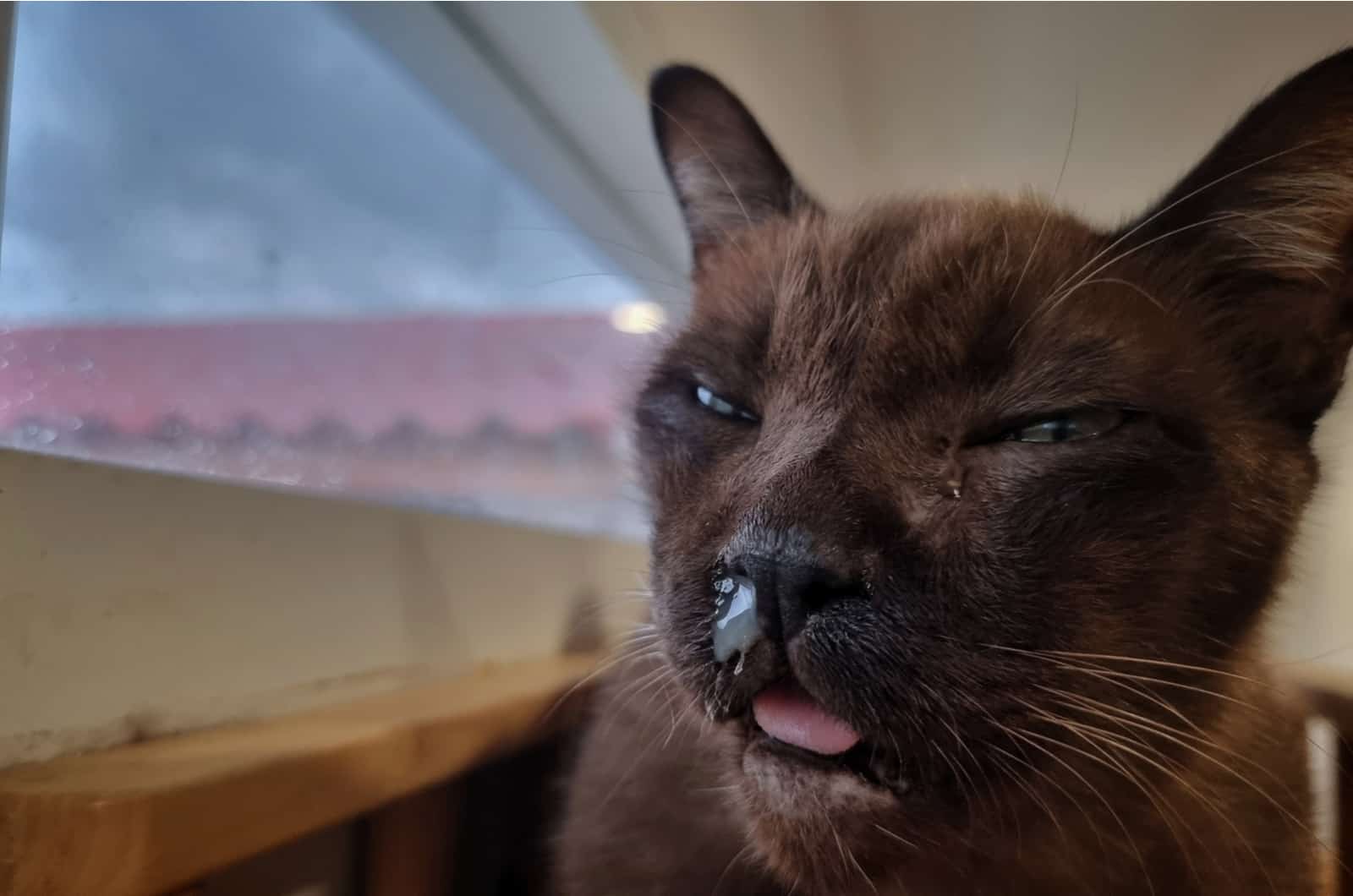
Upper respiratory infection is a common condition in cats and young kittens. It may occur as a result of different bacterial and viral infections.
The viruses and bacterias that may cause this condition in cats are:
• Feline herpesvirus type-1 (FVR)
• Feline calicivirus (FCV)
• Bordetella bronchiseptica
• Chlamydophila Felis
The respiratory infection usually affects the mouth and nose, however, it may also affect the eyes, causing an infection.
Symptoms that point to upper respiratory infection in kittens are:
• Eye discharge
• Coughing
• Sneezing
• Nose discharge
• Swollen eyes
Treatment
The treatment needs to start with a detailed vet check. After that, the vet will be able to provide the kitten with the appropriate treatments. The treatments for upper respiratory infection in kittens usually include antiviral medications and oral antibiotics.
Epiphora
Epiphora in kittens is a condition that causes extremely watery eyes. This condition is common in cats, and there are different types of it.
It may be due to distichiasis, which is the turning in of the eyelashes, and due to entropion, which refers to the turning in of the eyelid.
One of the most obvious symptoms of epiphora is excessive tear drainage, but other symptoms may appear as well:
• Inflammation
• Ulcers
• Eye discharge
• Squinting
• Skin irritation around the eyes
Treatment
A unique tool must be put into the ocular ducts to wash out the contents in order to cure epiphora in cats.
Medications are based on the diagnosis and plan for treating your cat. These may include topical antibiotic ointments and pain-relieving ointments that will contribute to the healing process.
An Elizabethan collar should be used during the recovery period to prevent your cat from further irritating the site.
How To Take Care Of Kittens’ Eyes?
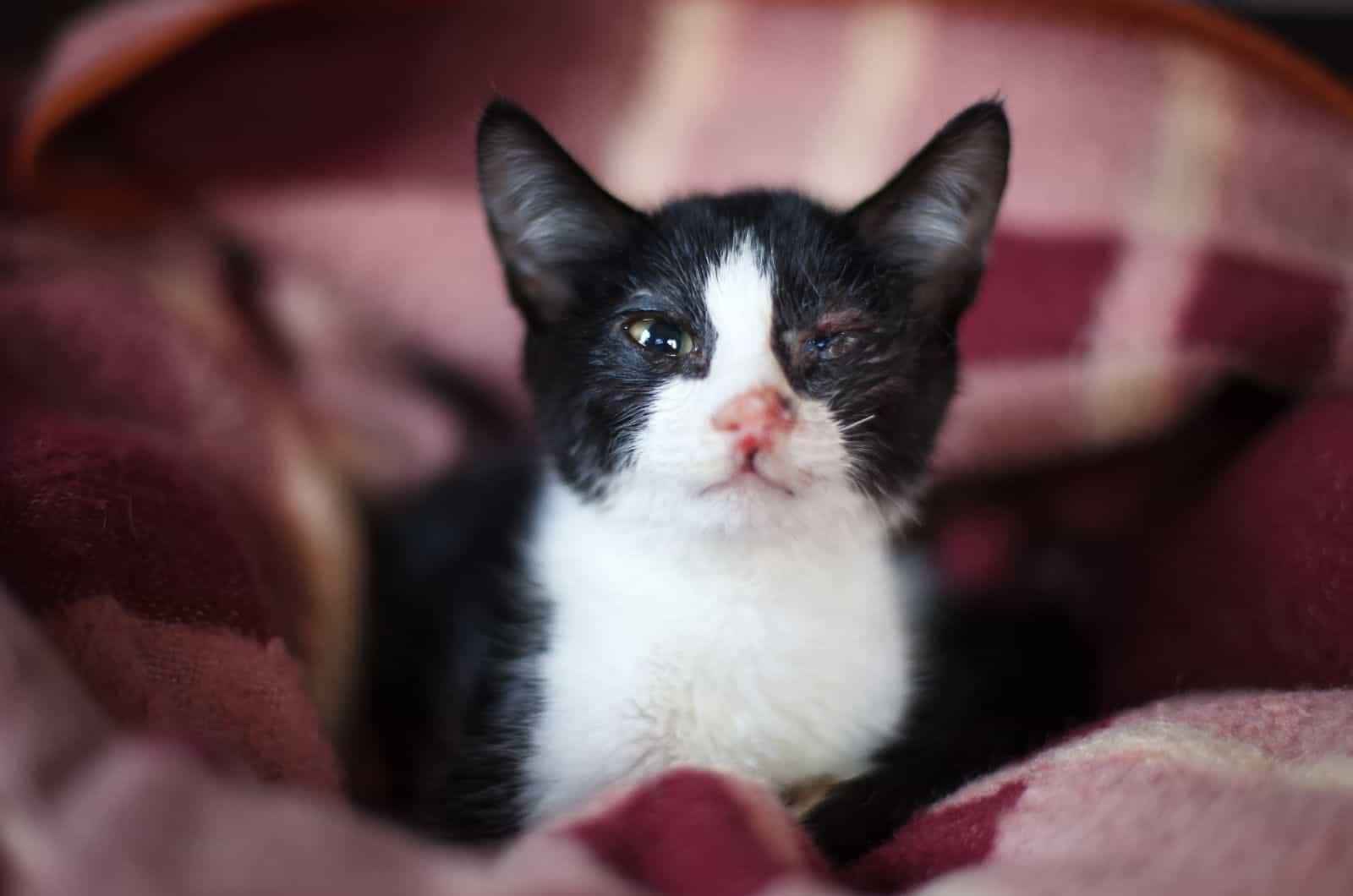
When kittens open their eyes for the first time, that’s the very beginning of their vision development. If you want to avoid complications and keep your kitten healthy, then special care of their eyes and vision is essential.
You should first prevent the kittens from being around bright lights. It’s best to provide them with a calm and dark room with a dim light.
Bright lights can damage the kittens’ eyes as they’re very sensitive during that period, and they still cannot dilate their pupils to control the amount of light they’re about to receive.
Another very important thing to do is to keep the kittens’ eyes clean. This is especially important if you want to avoid some of the previously mentioned eye infections.
Usually, a mother cat keeps the kittens’ eyes clean, however, if you have an orphaned kitten, you should take on the role of a mother cat.
The best way to do that is to soak a clean cotton ball or a washcloth in warm water and gently clean the kitten’s eyes and face.
FAQ
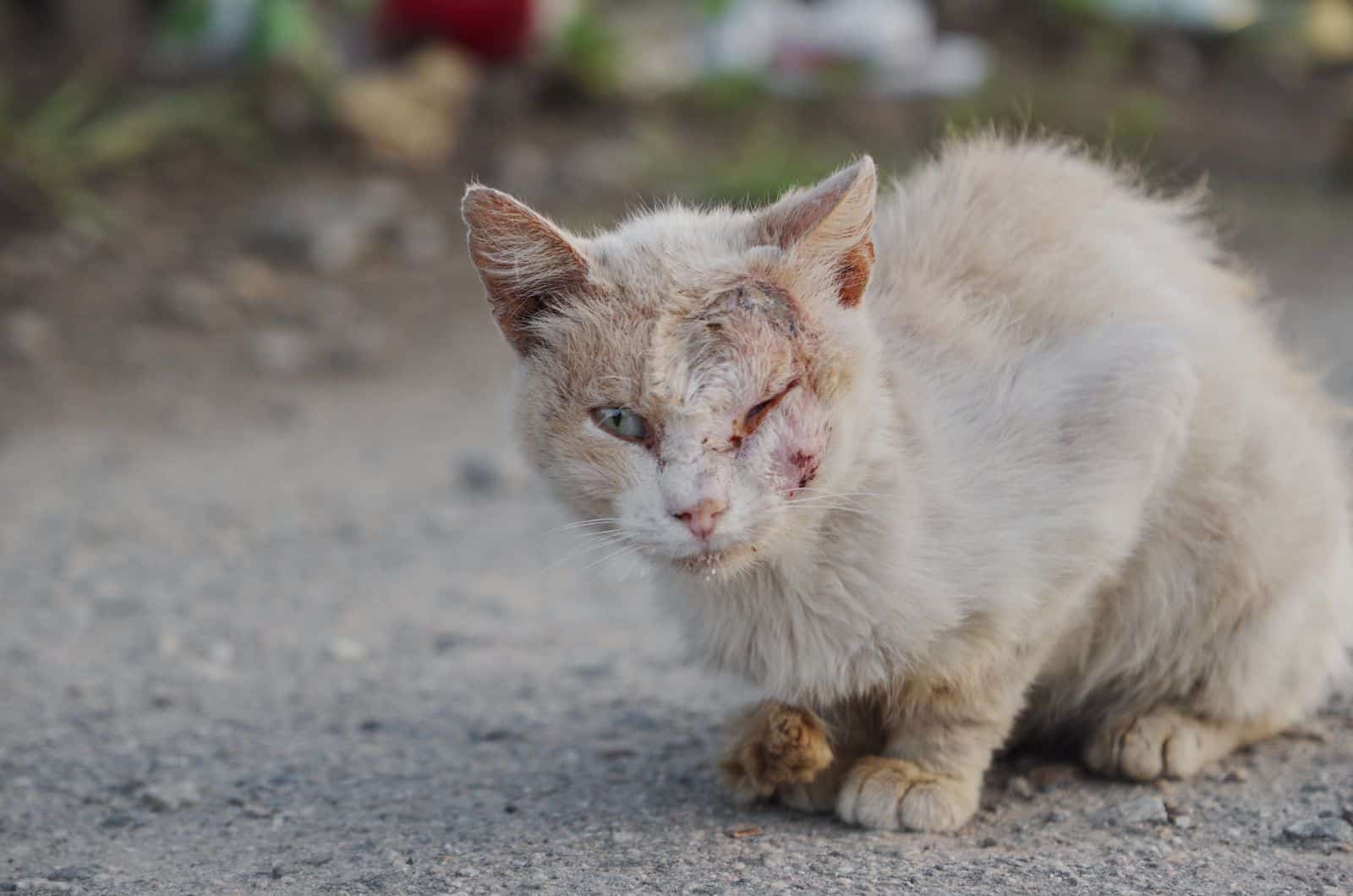
Will A Kitten’s Eye Infection Go Away On Its Own?
Whether a kitten’s eye infection will go away on its own or not depends on the exact cause of the infection. In less serious conditions, the infection usually resolves on its own.
However, in severe cases, a professional examination and treatment will be needed. After the vet determines the underlying cause of the infection, he’ll provide the kitten with the treatment.
In most cases, the treatment includes antibiotic medications, antibiotic ointment, eyedrops, antiviral medications, or even surgery in the most serious cases.
What Are The Risks Of Leaving An Eye Infection Untreated?
Cats can develop several different forms of eye infections. Most mild infections resolve on their own, but severe infections require special vet care and treatment. If the infection is not treated, it could result in even more serious complications.
Different other health problems may develop, and the untreated infection may lead to complete blindness. This is why it’s always important to react right away.
How Long Does It Take For A Kitten Eye Infection To Heal?
Usually, a kitten’s eye infection doesn’t take a long time to heal. It heals very quickly, especially if provided with proper treatment.
It takes approximately 2 weeks for a kitten eye infection to heal, especially if it’s provided with antibiotic medications, topical ointments, or eye drops, depending on the underlying cause of the infection.
However, if the infection doesn’t heal after two weeks, then you should take your kitty to the vet for an examination and proper treatment. That’s highly important because this may point to severe infections, which may lead to blindness if left untreated.
How Can I Treat My Kitten’s Eye Infection At Home?
Most kitten eye infections don’t require special veterinary help immediately, as they resolve by themselves. So, if you notice that your kitten has eye problems, make sure you clean their eyes gently by using warm water and a washcloth or a cotton ball.
This should also be done if the kittens don’t have eye infections to prevent them from developing one and to keep their eyes healthy.
In case of an infection, you can also use a warm compress and apply it on the kitten’s eyes so that the eyelids don’t stick together, leading to closed eyes.
What Are The Symptoms Of Eye Infection In Kittens?
Cats can get a variety of eye infections, but the majority of them have similar signs. The following are signs of kitten eye infections:
• Swollen eyes and eyelids
• Red eyes
• Eye discharge
• Lethargic and weakness
• Excessive blinking or squinting
• Sneezing
• Watery eyes
• Loss of appetite
• Crusts
• Itchy eyes
Last Words
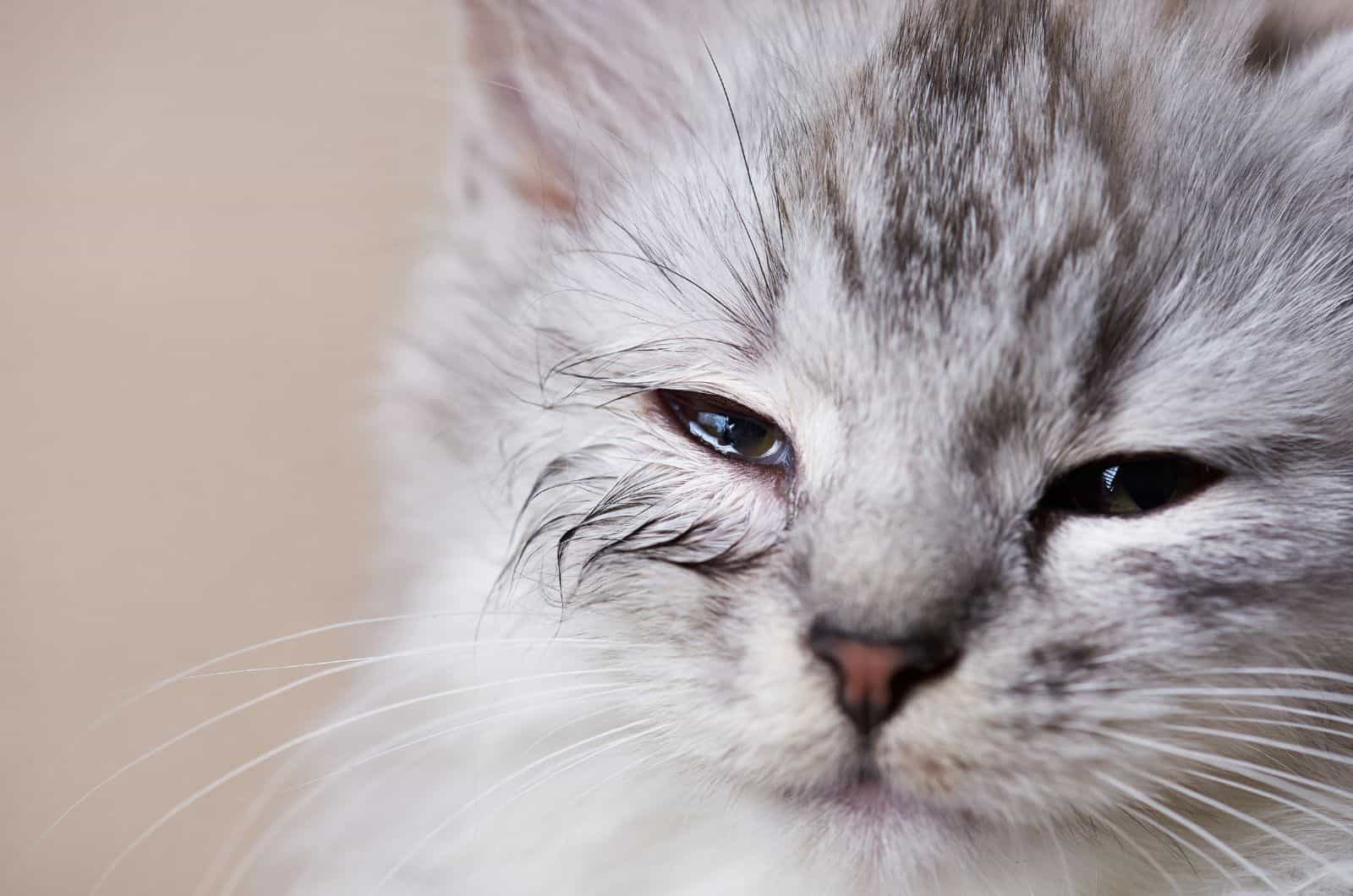
This article provides you with everything you need to know about kitten eye infections, the possible causes of infections, symptoms, and how to treat them adequately.
As a responsible pet owner, you should know that kittens are extremely sensitive and prone to different infections, which is why they require special care.
Without proper care, different conditions may affect the cat’s eyes, such as allergies, bacterial and viral infections, upper respiratory infections, conjunctivitis, epiphora, feline herpes virus, blepharitis, keratitis, and uveitis.
Each one of these conditions is accompanied by certain symptoms and needs to be treated properly.
So, if you notice any changes in your kitten’s eyes or vision, make sure you contact your vet immediately.
Some of these conditions can be treated at home; however, it’s always better to consult the vet first.
If you want to avoid these unpleasant situations, then you need to make sure that your kitten’s eyes are always clean and that they’re provided with a calm and safe environment away from the bright lights.
Related Content
• Cat Foaming At The Mouth – 12 Reasons + Solutions
• Can Kittens See In The Dark – Get To Know Your Kitten’s Eyes
• New Kitten Checklist – 2023 Guide On What To Do & What To Buy
Like this post? Share or pin it for later!
